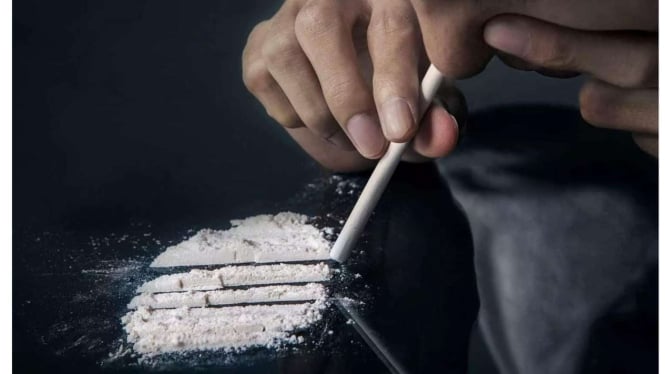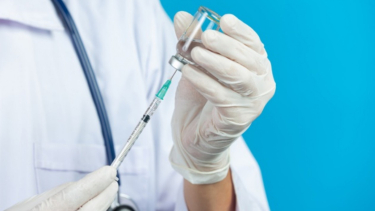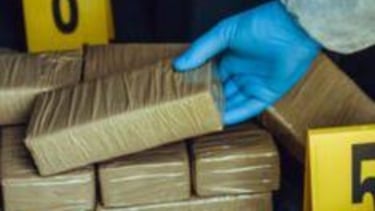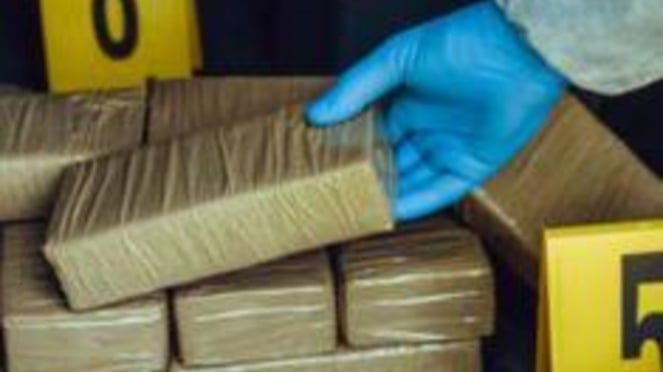Scientists Create New Vaccine for Cocaine Addiction
- nypost.com
Brazil – Scientists in Brazil, the world's second-biggest consumer of cocaine have announced the development of an innovative new treatment for addiction to cocaine and its powerful deriactive crack, a vaccine.
Named "Calixcoca," the test vaccine, which has shown promising results in trials on animals, triggers an immune response that blocks cocaine and crack from reaching the brain, which researchers hope will help users break the cycle of addiction.
The experimental shot has shown promising results in animal trials and will soon enter the final stage of trials - testing on humans.
Ilustrasi vaksin.
- Freepik/jcomp
Earlier this year, vaccines for fentanyl and heroin overdoses, which would be given to high-risk drug users, were also shown to be successful in animal studies and are due to enter human trials next year, suggesting vaccines could be a novel way of getting a grip on America's overdose problem.
When someone snorts cocaine, the powder is absorbed into the blood through the nasal tissues.
People may also rub the drug onto their gums or dissolve it in water and inject it, where it reaches the bloodstream quickly and makes the drug's effects more intense.
Brazil's vaccine works by prompting the immune system to release antibodies that attach to cocaine molecules in the blood.
This makes the molecules too large to enter the brain's mesolimbic pathway or the 'reward center' of the brain. Here, the drug would stimulate high levels of the pleasure-inducing hormone dopamine.
By blocking the molecules, the vaccine would prevent a person from feeling the high they usually experience after taking the drug.
The shot is not intended to reverse cocaine overdoses but is hoping to prevent an addict from taking the drug in the first place because of the lack of a high.
It is not clear if the vaccine is administered as a single shot or over a number of injections.
If the vaccine attains regulatory approval, it would be the first time cocaine addiction has been treated using a vaccine.
Psychiatrist Frederico Garcia, head of the team that developed the treatment at the Federal University of Minas Gerais in Brazil said while attempts had been made to create a similar shot in the United States, they were halted when results from clinical trials were not strong enough.
So far, Calixcoca has proved to be effective in tests on animals, generating antibodies against cocaine with minimal side effects.
It is now due to enter human trials, and Dr Garcia said more than 3,000 people have contacted his team to volunteer in the clinical trials.
Last week, the vaccine won the top prize - half a million dollars - at the Euro Health Innovation awards for Latin American medicine.
"There is currently no registered treatment for cocaine and crack addiction and an addict's only option is a combination of psychological counseling, social assistance and rehabilitation," dr Garcia said.
Ilustrasi paket kokain.
- Istimewa
The vaccine would assist patients at their most critical stages of recovery, such as when they leave rehab, he added.
It was also found to protect rat fetuses against cocaine, researchers found, suggesting it could be given to pregnant addicts to protect their unborn babies.
The shot is made entirely from chemical compounds designed in a lab, rather than biological ingredients, which is how many other vaccines, like some for cancer, are made.
This means it is cheaper to make and does not have to be stored at low temperatures.
If approved, the vaccine will not be available to everyone, Dr Garcia said, but will go to recovering addicts who have stopped taking cocaine and want to stay off the drug.
In the United States, cocaine is a Schedule II substance, alongside fentanyl, methamphetamines and morphine. In the United Kingdom, it is a Class A drug or among those with the highest potential for abuse.
Crack, a derivative of cocaine, is made by cooking cocaine powder with baking soda, then breaking it into small pieces called rocks. Crack cocaine looks like white or tan pellets.
Both crack and cocaine are highly addictive. One in four regular cocaine users becomes addicted in America, and only one in four of those addicts manages to quit after five years of treatment.
Globally, the cocaine industry is worth around $130 billion.
Drug overdose deaths involving cocaine have been steadily rising over the years, from 6,784 in 2015 to 15,883 in 2019. By 2021, deaths had increased sharply to 24,486.





























